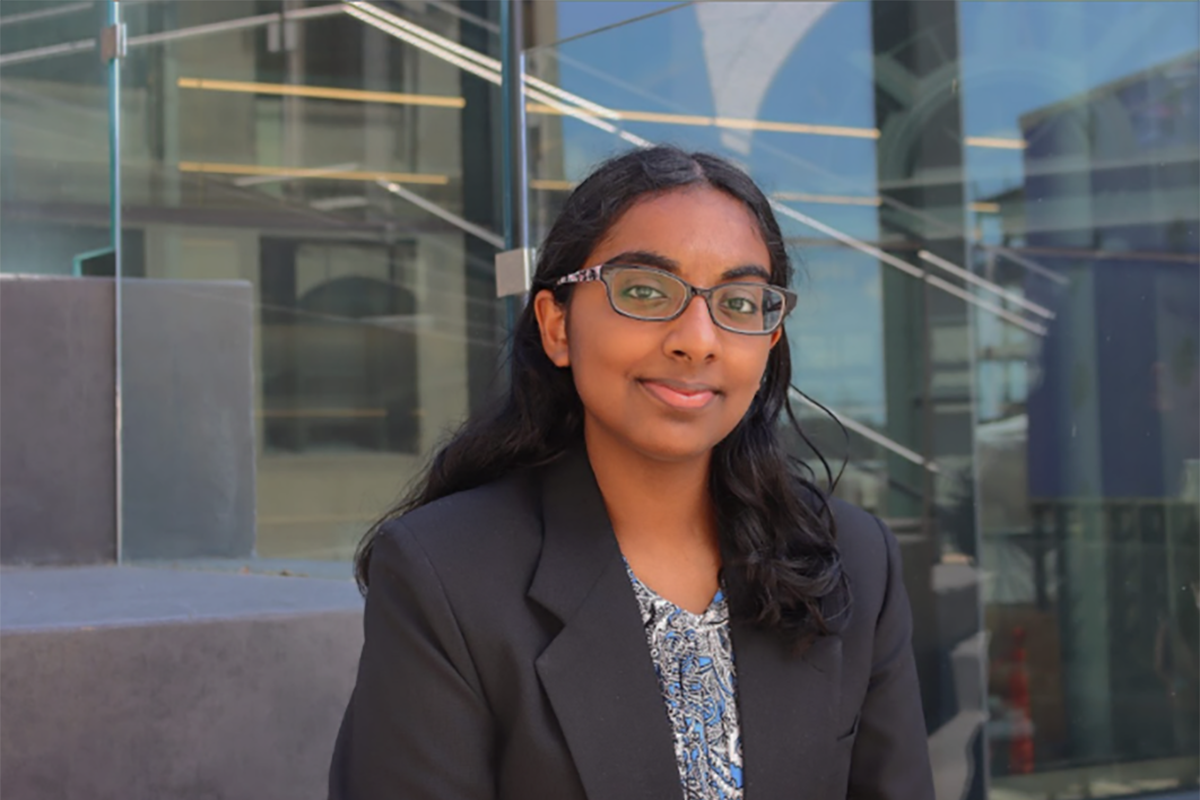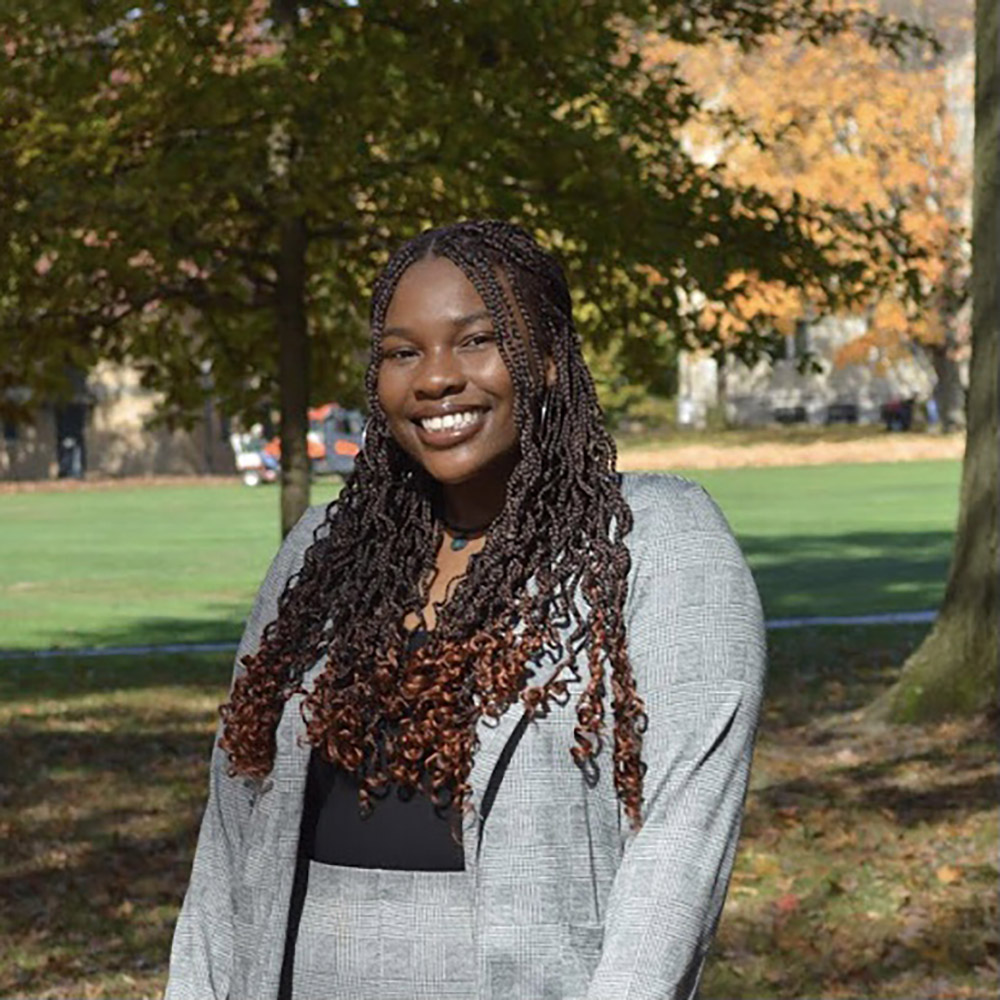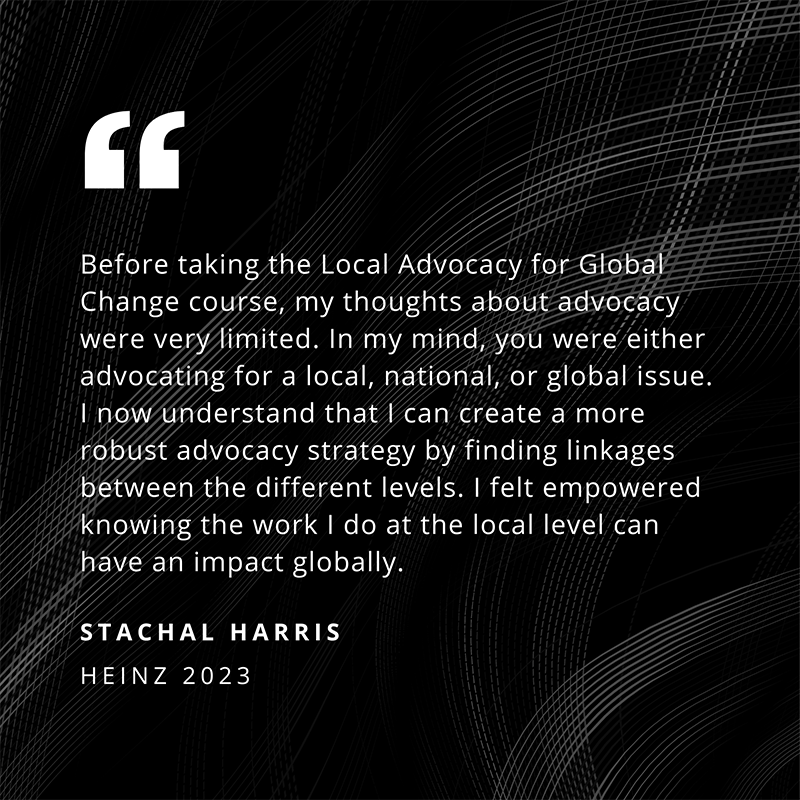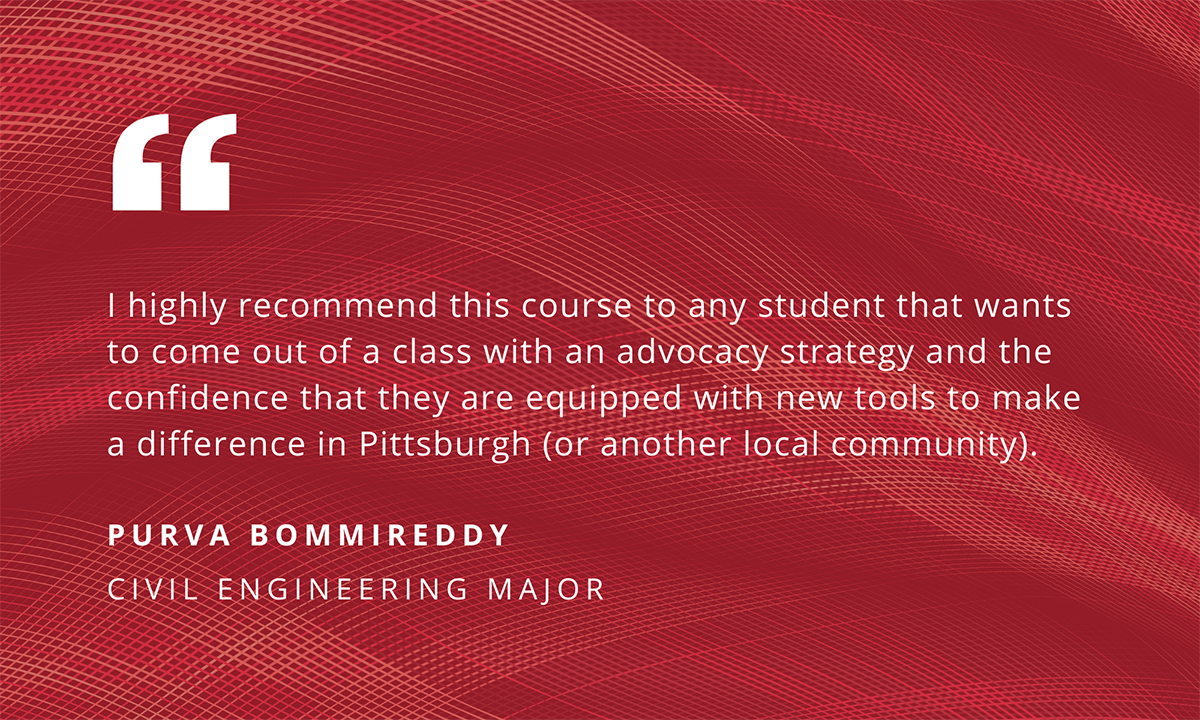Advocacy-focused Class Makes Solving Real-world Problems Accessible

Carnegie Mellon is filled with students who are passionate about making a difference in the world. But for those who don’t have much experience with advocacy, it can be challenging to determine a first step. This past semester, “Local Advocacy for Global Change,” taught by Sustainability Initiative Director Alexandra Hiniker, helped students center equity while identifying links between environmental, social, and economic justice, and strategizing solutions to issues both at home and around the world.
“When I’ve asked students what they care about, a lot of them have pointed to recycling because it’s accessible—even though there are so many issues that are more relevant to their interests,” Hiniker said. “Students tell me they have a hard time seeing how they can have an impact on other topics. They recognize problems and can imagine solutions, but they don’t have access to the steps in between. They need the tools to center the people most impacted when developing equitable, sustainable solutions and applying them in real-world contexts.”
As the campus convener where all disciplines come together to innovate, the University Libraries is the permanent home of the Sustainability Initiative. Hiniker’s interdisciplinary class, offered through the Department of Modern Languages and the School of Design, brought together students from across campus to continue that collaborative work. The seven participants, ranging from a first-year Tepper School of Business student to Heinz College graduate students, put their heads together to look at major issues in new ways.


“The most impactful part of the class for me was the class discussions. I learned a lot from my classmates and my professor,” said Stachal Harris, a Heinz master’s student studying public policy and management. “Being able to hear about the other issues people were interested in and how they went about creating their advocacy strategy was so inspiring.”
The six-week class was Hiniker’s first experience teaching. But she has 15 years of prior experience working in advocacy on the local, national, and international level, and she drew on that expertise to shape the course. In her career, she has led humanitarian disarmament initiatives in Cambodia with the United Nations, and in Laos and Lebanon with the Cluster Munition Coalition. She implemented pandemic preparedness projects in Africa, Asia and Eastern Europe. She also led New York City’s sustainability program at the Mayor’s Office for International Affairs.
First, the class explored the 17 Global Goals — a shared blueprint for peace and prosperity for people and the planet, adopted by all United Nations members in 2015. These goals map out a way for countries around the world — as well as local governments and even smaller units, like universities — to create a more sustainable future for all. Students then selected issues local to Pittsburgh that were close to their hearts to investigate for the remainder of the course.
For Harris, that issue was maternal mortality. “When I first came to Pittsburgh for graduate school, I remember being told not to get pregnant here as a Black woman because the Black maternal mortality rates were awful, with Black women dying at a rate three times higher than white women in Allegheny County,” she explained. “As a result, this has become an area of interest for me as a policy student.”
Purva Bommireddy, a rising junior in the College of Engineering studying civil engineering, wanted to look closer at the implications of something she’d been exposed to during a field trip for an engineering class: redlining, a discriminatory housing practice where banks refuse to offer loans or other services to racial minorities.
“Walking a few blocks from an affluent area to a historically redlined neighborhood took us from an upscale shopping outlet and sleek, modern buildings to streets with old houses stacked tightly together,” Bommireddy explained. “Seeing this reality in Pittsburgh motivated me to want to learn more about housing injustice, its connections to other sectors such as healthcare and food security, and how national and international policies can relate back to local action.”

Additional topics that students explored include access to clean drinking water, housing as a human right, bicycling, energy equity, and creating a safer world for all gender identities and experiences.
Students started small, looking at their issue as it applied to those most impacted. Then they moved outwards, thinking nationally and internationally. At the end of the semester, they summarized their issue, and identified ways they could work with national and international partners to address it. This became their advocacy strategy, the final project.
The class also worked with Librarian Charlotte Price, liaison to the Departments of History and Modern Languages, to research their issues.
“Working with the Libraries to research my topic was a very smooth process,” Bommireddy said. “After I reached out about my interest in studying redlining, Charlotte pointed me to a diverse array of primary and secondary sources on the topic. They ranged from government documents and established books in the field to mapping software and databases. Due to the abundance and range of articles and excerpts I read, I felt more confident in the conclusions and connections I was drawing about the history of discrimination in U.S. housing markets and the people that it impacts today.”
The course is the latest in a slate of programming from the Sustainability Initiative — and the Libraries — to empower the CMU community to work toward societal change. In January, Hiniker appeared alongside a panel of experts from around the university for a virtual discussion about community-focused projects and ideas on how those in academia can support community-led advocacy. More recently, she welcomed Ambassador Maritza Chan, the first woman to serve as the Permanent Representative of Costa Rica to the United Nations, for a conversation. She’s also led workshops for staff, faculty, and students about the Global Goals, and plans to offer more in the future.
“One of the objectives of the Sustainability Initiative is encouraging students to be global citizens,” Hiniker said. “People at Carnegie Mellon are already researching and teaching about issues related to the world’s greatest challenges, and there’s so much potential to link their efforts to practical applications. It’s my goal to help them identify mechanisms beyond the university for initiating widespread change.”
by Sarah Bender, Communications Coordinator
Feature image: headshot of Purva Bommireddy
